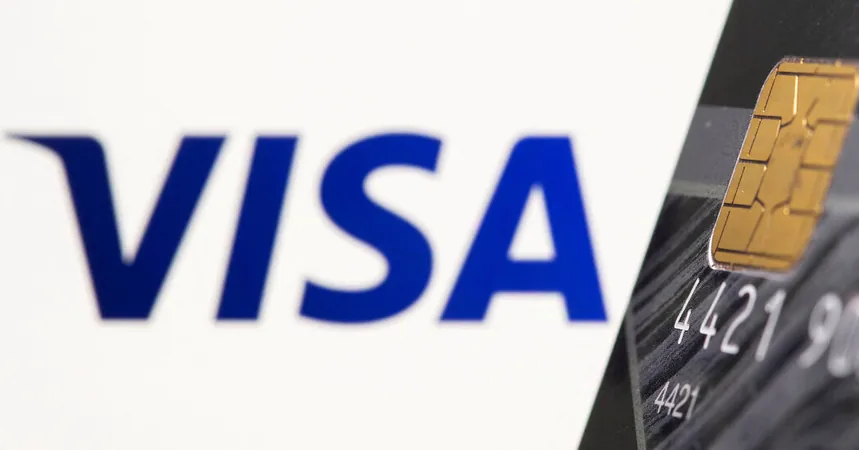
Justice Department to Launch Antitrust Lawsuit Against Visa: What It Means for Consumers
2024-09-23
Overview of the Antitrust Lawsuit Against Visa
In a significant legal development, the Justice Department is poised to file an antitrust lawsuit against Visa, accusing the financial services behemoth of engaging in practices that stifle competition among payment processors. This alarming accusation comes as part of a broader investigation that has been ongoing for several years, revealing troubling dynamics in the payment processing industry.
Details of the Lawsuit
The lawsuit revolves around Visa’s payment processing technology, which facilitates transactions between banks and merchants. According to insider sources, the Justice Department's case will assert that Visa systematically penalizes its customers—merchants and financial institutions—when they opt for competing payment processing services, ultimately harming consumer choice.
Timeline and Historical Context
Insiders indicated that the lawsuit could be formally filed as soon as Tuesday, although Visa has not released any public comments following the revelations. Historically, this isn’t the first legal challenge faced by Visa; the Justice Department previously took action in 2020 to block Visa’s $5.3 billion acquisition of fintech company Plaid, asserting that the merger would eliminate a noteworthy competitor in the burgeoning financial technology landscape.
Government’s Antitrust Efforts
The department's mounting scrutiny is part of an aggressive campaign by the Biden administration to address perceived anticompetitive practices across various sectors. Recent actions have targeted a diverse array of companies, from real estate tech firm RealPage to entertainment giant Live Nation, parent company of Ticketmaster. The Federal Trade Commission (FTC) has also entered the fray, challenging drug middlemen on their role in inflating insulin prices—an issue that has drawn widespread public outcry.
Broader Implications for Consumers
This wave of antitrust litigation extends beyond Visa, as high-profile tech giants like Amazon, Apple, Google, and Meta face allegations of abusing their market power. The DOJ and the FTC have effectively blocked mergers when deemed a threat to competition, such as Penguin Random House’s attempted acquisition of Simon & Schuster.
Conclusion
As the Justice Department prepares for this crucial lawsuit against Visa, the implications for consumers and the broader economic landscape are vast. With increasing governmental scrutiny on corporate monopolies, we may be on the verge of more significant changes in how payment processing and other essential services operate. Stay tuned to learn how this lawsuit could reshape the financial services landscape and whether it will pave the way for fairer pricing and more options for consumers!


 Brasil (PT)
Brasil (PT)
 Canada (EN)
Canada (EN)
 Chile (ES)
Chile (ES)
 España (ES)
España (ES)
 France (FR)
France (FR)
 Hong Kong (EN)
Hong Kong (EN)
 Italia (IT)
Italia (IT)
 日本 (JA)
日本 (JA)
 Magyarország (HU)
Magyarország (HU)
 Norge (NO)
Norge (NO)
 Polska (PL)
Polska (PL)
 Schweiz (DE)
Schweiz (DE)
 Singapore (EN)
Singapore (EN)
 Sverige (SV)
Sverige (SV)
 Suomi (FI)
Suomi (FI)
 Türkiye (TR)
Türkiye (TR)